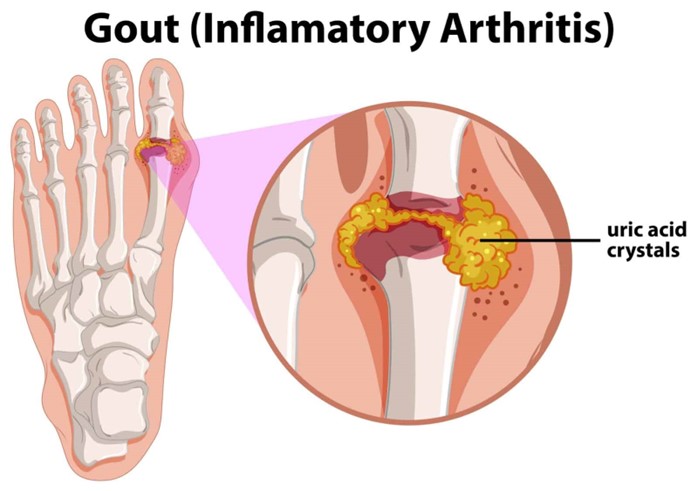A nurse is providing dietary teaching to a client newly diagnosed with celiac disease. Which of the following information should the nurse include in the teaching?
Dietary restrictions will eventually allow the intake of gluten to resume.
This condition may cause secondary lactose intolerance.
Nutritional therapy for this condition includes limiting proteins and calories.
A normal diet can resume after a period of remission.
The Correct Answer is B
Choice A reason: Dietary restrictions will not eventually allow the intake of gluten to resume. Gluten is a protein found in wheat, barley, rye, and some oats. It causes damage to the small intestine in people with celiac disease. The only treatment for celiac disease is a lifelong gluten-free diet.
Choice B reason: This condition may cause secondary lactose intolerance. Lactose is a sugar found in milk and dairy products. It is broken down by an enzyme called lactase in the small intestine. People with celiac disease may have reduced levels of lactase due to the damage to the small intestine caused by gluten. This can lead to lactose intolerance, which is the inability to digest lactose properly. Symptoms of lactose intolerance include bloating, gas, diarrhea, and abdominal pain after consuming dairy products.
Choice C reason: Nutritional therapy for this condition does not include limiting proteins and calories. People with celiac disease need adequate amounts of proteins and calories to maintain their health and prevent malnutrition. They also need to ensure that they get enough vitamins, minerals, and fiber from gluten-free sources.
Choice D reason: A normal diet cannot resume after a period of remission. Celiac disease is a chronic autoimmune disorder that does not have a cure. Even if the symptoms improve or disappear, the damage to the small intestine can still occur if gluten is consumed. Therefore, a strict gluten-free diet must be followed for life.
Nursing Test Bank
Naxlex Comprehensive Predictor Exams
Related Questions
Correct Answer is C
Explanation
Choice A reason: Eating more tuna is not an appropriate food choice for a client who has gout because it is high in purines, which are substances that break down into uric acid in the body. Uric acid can form crystals in the joints and cause inflammation and pain, which are symptoms of gout. Tuna should be limited or avoided by clients who have gout.
Choice B reason: Eating more red meat is not an appropriate food choice for a client who has gout because it is high in purines, which are substances that break down into uric acid in the body. Uric acid can form crystals in the joints and cause inflammation and pain, which are symptoms of gout. Red meat should be limited or avoided by clients who have gout.
Choice C reason: Eating blueberries every morning is an appropriate food choice for a client who has gout because they are low in purines and high in antioxidants, which are substances that protect the cells from damage caused by free radicals. Antioxidants can help reduce inflammation and pain, which are symptoms of gout. Blueberries also provide vitamin C, fiber, and water for the client.
Choice D reason: Eating bananas for a snack is not an appropriate food choice for a client who has gout because they are high in fructose, which is a type of sugar that can increase uric acid levels in the blood. Fructose can worsen gout attacks by triggering inflammation and pain in the joints. Bananas should be limited or avoided by clients who have gout.

Correct Answer is B
Explanation
Choice A reason: Dietary restrictions will not eventually allow the intake of gluten to resume. Gluten is a protein found in wheat, barley, rye, and some oats. It causes damage to the small intestine in people with celiac disease. The only treatment for celiac disease is a lifelong gluten-free diet.
Choice B reason: This condition may cause secondary lactose intolerance. Lactose is a sugar found in milk and dairy products. It is broken down by an enzyme called lactase in the small intestine. People with celiac disease may have reduced levels of lactase due to the damage to the small intestine caused by gluten. This can lead to lactose intolerance, which is the inability to digest lactose properly. Symptoms of lactose intolerance include bloating, gas, diarrhea, and abdominal pain after consuming dairy products.
Choice C reason: Nutritional therapy for this condition does not include limiting proteins and calories. People with celiac disease need adequate amounts of proteins and calories to maintain their health and prevent malnutrition. They also need to ensure that they get enough vitamins, minerals, and fiber from gluten-free sources.
Choice D reason: A normal diet cannot resume after a period of remission. Celiac disease is a chronic autoimmune disorder that does not have a cure. Even if the symptoms improve or disappear, the damage to the small intestine can still occur if gluten is consumed. Therefore, a strict gluten-free diet must be followed for life.
Whether you are a student looking to ace your exams or a practicing nurse seeking to enhance your expertise , our nursing education contents will empower you with the confidence and competence to make a difference in the lives of patients and become a respected leader in the healthcare field.
Visit Naxlex, invest in your future and unlock endless possibilities with our unparalleled nursing education contents today
Report Wrong Answer on the Current Question
Do you disagree with the answer? If yes, what is your expected answer? Explain.
Kindly be descriptive with the issue you are facing.
